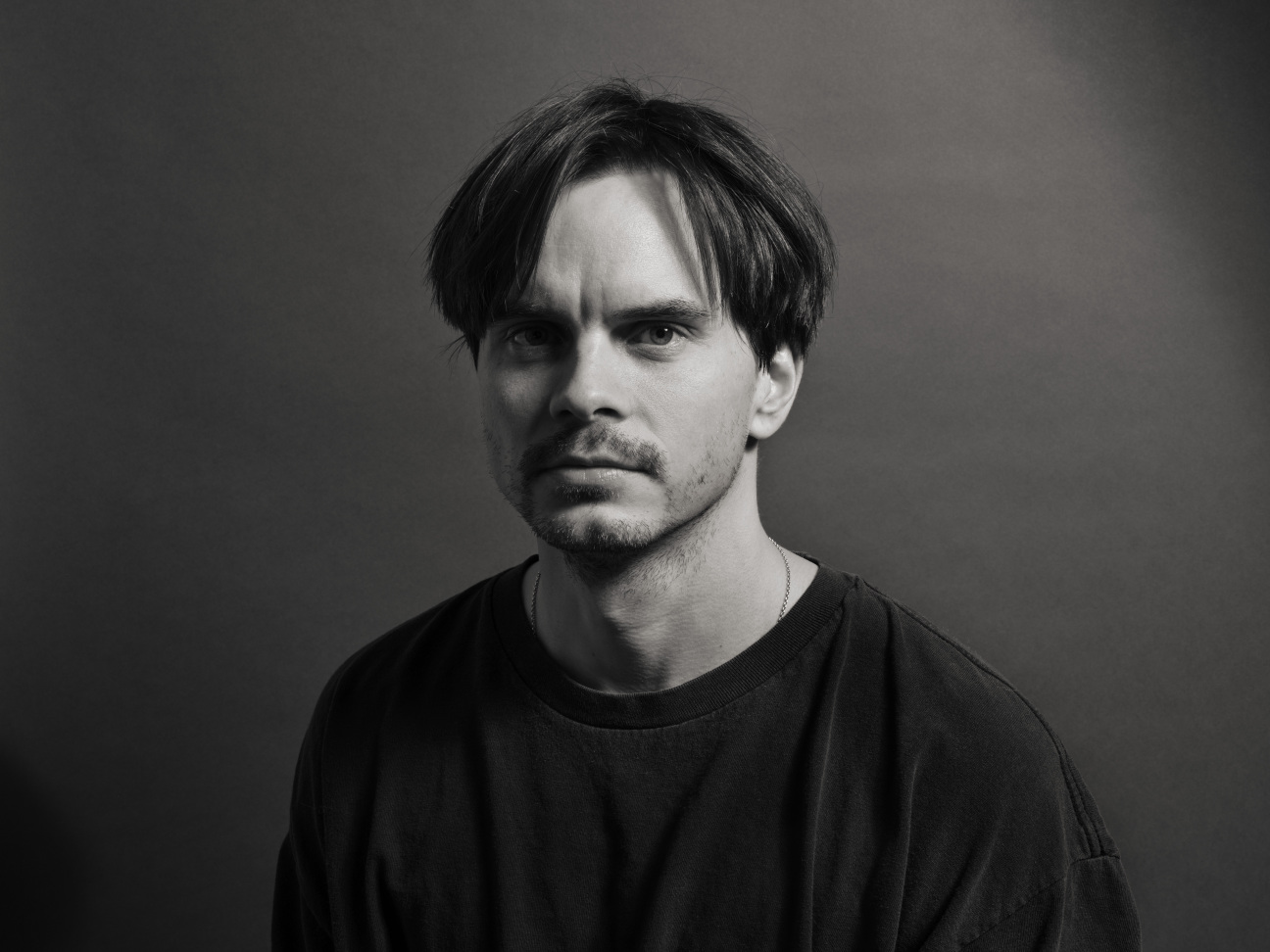
“I've had an image in my head for so long,” says Kristoffer Borgli, “of a blonde girl in Oslo who has a terrific skin disease.” This unsettling image finds a home in Sick of Myself, the Norwegian filmmaker’s first feature, which completes the journey from the Cannes Film Festival to select theaters this week. The film, a bombastic body horror send-up that sneaks up on its audience under the cover of a disarmingly “Woody Allen-esque” portrait of Oslo life, is the culmination of years of social observation in Borgli’s home city. “This story makes sense in a Norwegian context, as a place that doesn't have a lot of social or class struggle,” he says. “I was interested in making a movie about people who create that struggle themselves in order to feel interesting and authentic.”
The film’s protagonist is Signe, a young barista who is compelled at every turn to thrust herself, with comic force, into the spotlight. At a gallery dinner for her artist boyfriend Thomas, who steals design furniture and exhibits it as his own, Signe cooks up a severe peanut allergy—committing so thoroughly to the act that she slams her face hard against the table and ends up in an ambulance. As Thomas’s celebrity swells, Signe infects herself with a horrific skin disease that kicks off a wave of magazine profiles and modelling contracts.
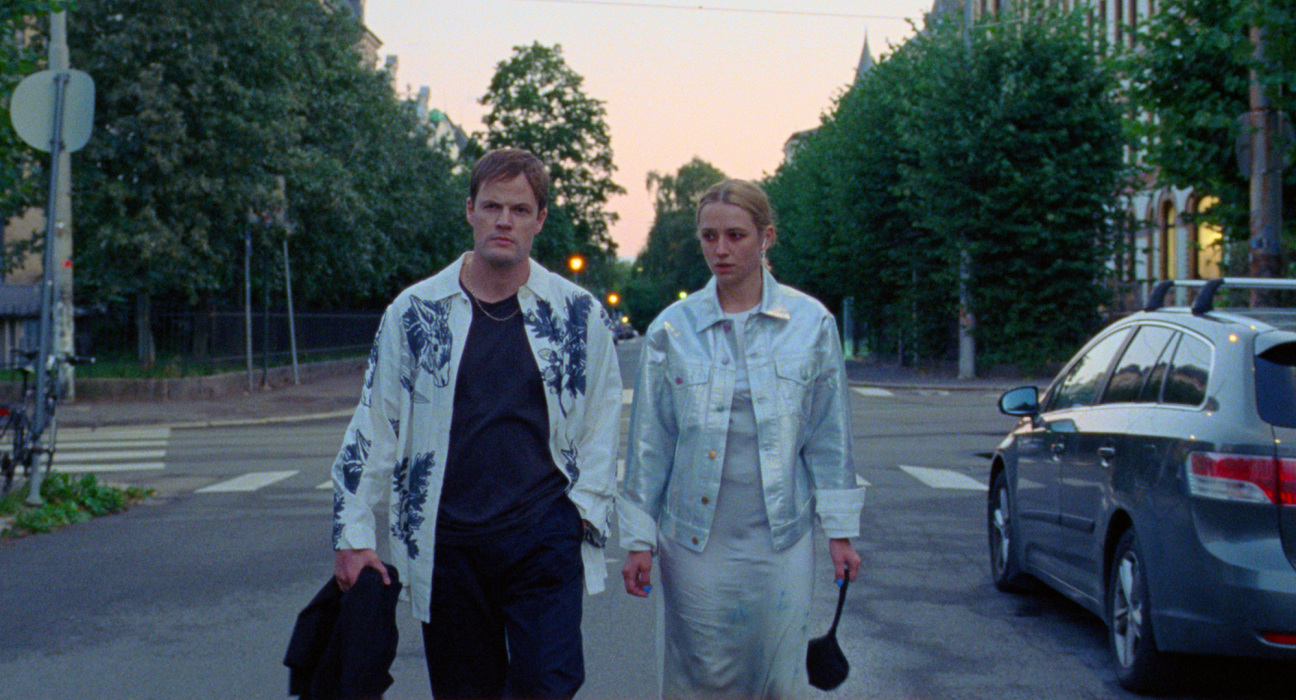
By resisting the temptation to kindle empathy for Signe, Borgli makes space for smoldering tension, slapstick absurdity, a critique of the superficiality of the fashion industry, and even a drive-by skewering of the art world. But Sick of Myself’s bawdy, entirely unsubtle embrace of body horror and narcissism revels in our voyeuristic fascination with the self-obsessed, showing how far they might go if left to their own devices. For Borgli, the film's surreal climax doesn’t feel entirely outside the realm of possibility: “She's exaggerated, of course, but not completely unrealistic,” he says. “You could find a Signe in your friend group.”
Here, Borgli tells CULTURED about Oslo’s hipster thieves, going out for dinner in full face prosthetics, and Søren Kierkegaard’s impact on the film.
Mara Veitch: Was there a specific moment that crystallized your vision for Sick of Myself?
Kristoffer Borgli: It was a combination of two elements. I've had an image in my head for so long, for reasons I don’t understand, of a blonde girl in Oslo who has a terrific skin disease, but she's happy. There was never a story to accompany this image until around 2016, when I noticed this big shift in the fashion industry towards inclusivity and away from old beauty standards. I thought, If I can get this girl to end up in that world, there might be something here.
Veitch: So it all starts with a vision of a blonde girl with a skin disease?
Borgli: Yeah. It’s just a nice image, you know?
Veitch: I guess it is. I wanted to ask you about a side plot in the film. Signe’s boyfriend is an artist on the verge of blowing up, and he exhibits furniture that he has literally stolen from shops and galleries. It’s a blatant metaphor for creative thievery. What is your relationship to the art world?
Borgli: At the time I was making the film, I heard a lot of gossip in Oslo about a group of people who were stealing design furniture—for years, in broad daylight—and led this bohemian life that was, well, stolen. I heard that one of them was actually in the art world and some of the pieces that he exhibits are stolen. I thought, Wow, that's so fun. I got really interested in them. I think that's when Sick Of Myself really clicked. Both people in this couple are con-artists in their own way, they're both into the shallow attention of an industry. Signe basically fails upwards, falling into the fashion industry by mistake. That was the comedic element of the story.
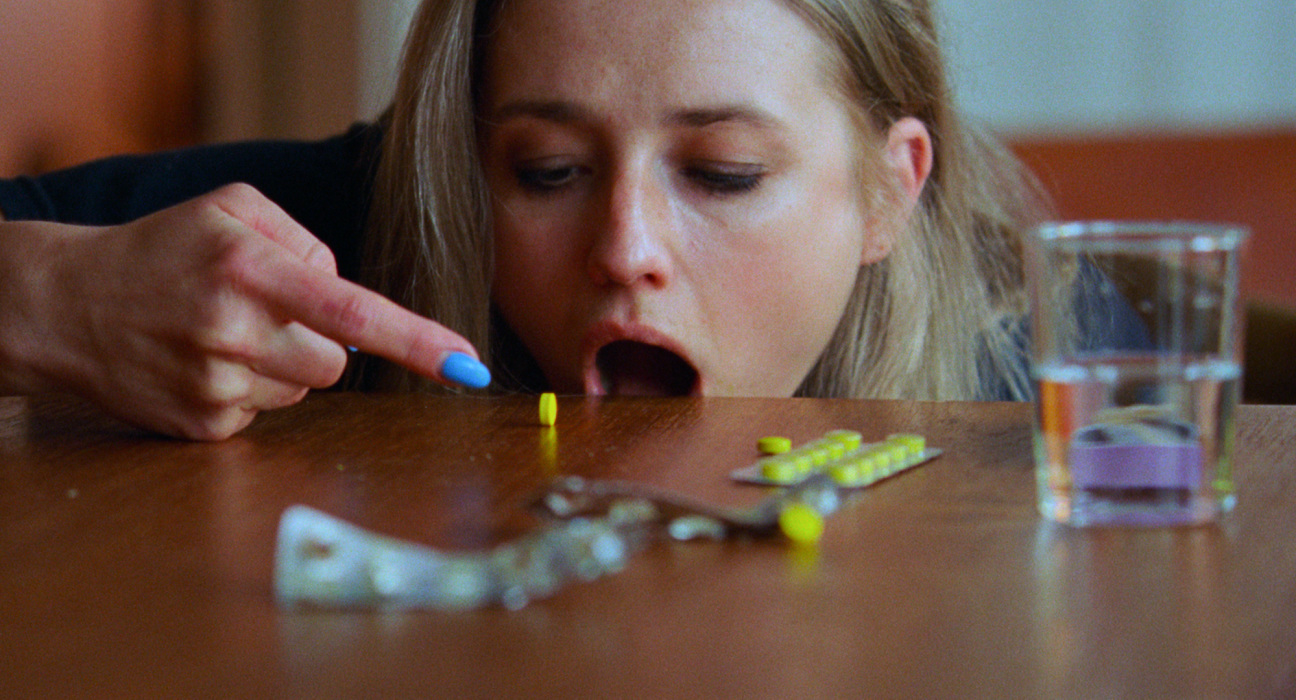
Veitch: The simplistic takeaway from this film would be that it’s a cautionary tale, or a critique of the superficiality of the creative industries. But I think it’s also an embrace of those “bad” things—attention, self-promotion, appropriation.
Borgli: Yeah, the film is like a modern, crooked version of Bonnie and Clyde. We do love these characters in our culture—we all want to read about Anna Delvey. I’ve always been interested in the idea of the con-artist lifestyle, and I think there might be a negative feedback loop in how we respond to those stories that incentivize that behavior. I was with these characters for years when I was writing, and I couldn't purely just hate them—I actually wanted to be around them. There's a certain person that you kind of want to invite to a dinner party, but you’re also afraid to. Either the night will be more fun, or it will be a trainwreck. For better or worse, they make their surroundings more exciting. I wanted to populate this movie with those kinds of personalities.
Veitch: The film is uncomplicated by internal conflict. Signe has no doubts about her decision to poison herself, and seems to be motivated entirely by self-interest. There’s no origin story that allows people to empathize with her. Why did you avoid that kind of character development?
Borgli: There's this Søren Kierkegaard quote, about how when life is rid of struggle, it's struggle that we will seek. There is something Sisyphusian about wanting some sort of struggle to explain yourself with … I don't think [Signe] knows exactly where the pressure is coming from, or why she's having those fantasies that we all have from time to time. The movie won’t give you a reason, like, “Here's the trauma: when she was seven, she was spanked.” Because beyond the basic hierarchy of needs—like shelter, food, and love, which are really straightforward to respond to—it gets complicated. Our existential needs are abstract; people try to solve them with careers, relationships, but there's no real clear map of how to satisfy them. In the film, all these pressures land in the lap of a person who happens to have a very competitive, opportunistic mindset and who follows them to their ultimate conclusion.
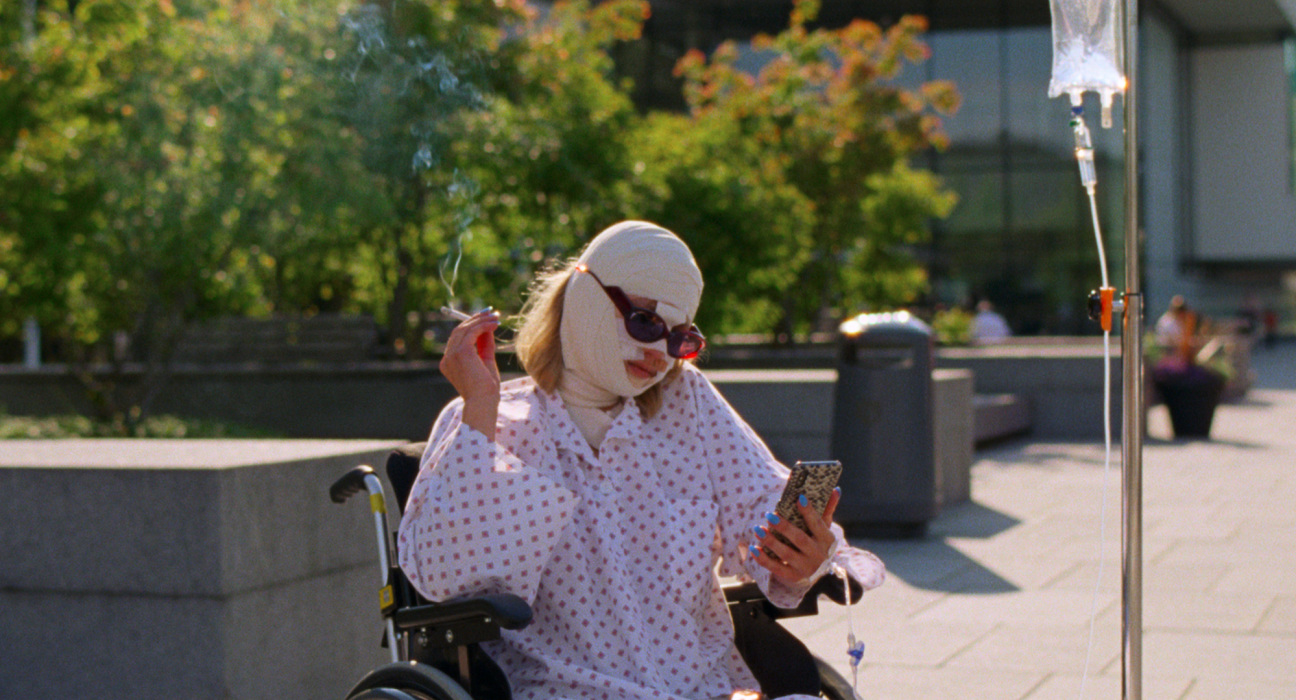
Veitch: The film plays some tricks—it starts off hyperrealist, and by the end it feels like a full-blown horror film. How do you want people to feel while watching it?
Borgli: I wanted to begin with a feeling of familiarity, of a Woody Allen-esque drama about people dealing with careers and love and competitiveness. It slowly becomes a body horror movie within that context. Horror movies have their own tone, so when those moments happen, you’re already expecting them. But putting those moments in a “normal movie,” not a fantasy context, was a way for me to generate this uncanny eeriness that comes close to disgust.
Veitch: How did you define Signe’s disease? Did you do your Reddit research?
Borgli: There was a moment in 2015 when a Russian drug called Krokodil went viral. It was named after the effect that it has on your skin—it makes you look like a crocodile. It looks horrific, it looks so bad, and people would knowingly use it. Of course they used it because they were heavily addicted to opiates, not because they wanted a skin disease.
Veitch: You’ve created such incredibly narcissistic characters. Do you have that tendency in you?
Borgli: I recognize those feelings—of competitiveness, narcissism, pettiness, neediness in a relationship—in myself. But I try to keep all of those things at bay. Sick Of Myself urges against those behaviors while offering the catharsis of seeing them taken to the extreme. There are a lot of movies about struggling people from a social group that you overlook in your daily life that teach you to empathize with them, and this is not one of them.
Veitch: What’s an on-set memory that still sticks with you?
Borgli: One day after we shot, Kristine [Kujath Thorp] was still wearing her face prosthetic—it was the only time she didn't take it off after a shoot—and we went to a restaurant to eat. Our waiter took orders from all of us, and kept staring at Kristine the whole time. She walked away and then came back a full 10 minutes later totally embarrassed and said, “I'm sorry, I completely forgot all of your orders.” That moment made the film feel real to me.

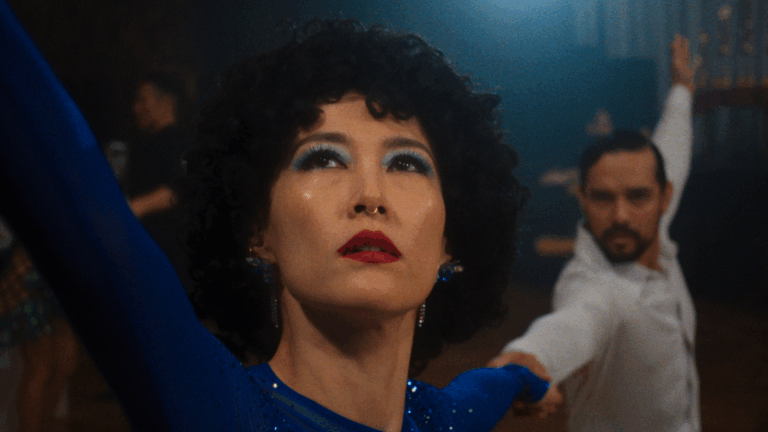
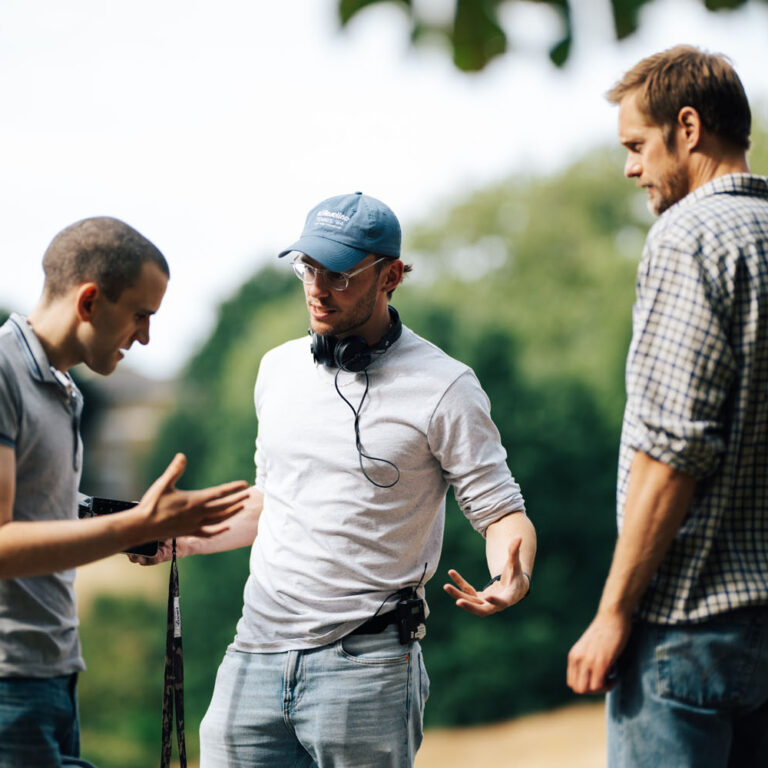
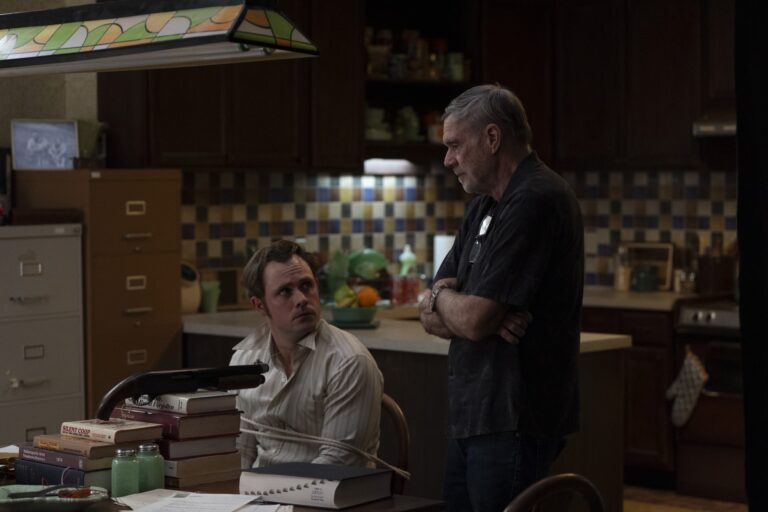
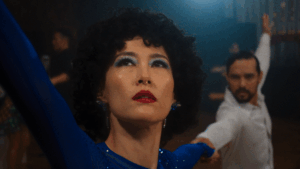

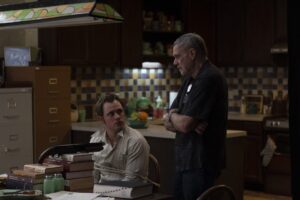



 in your life?
in your life?

